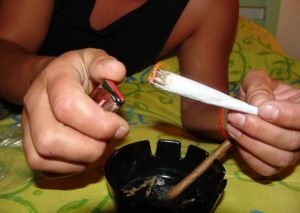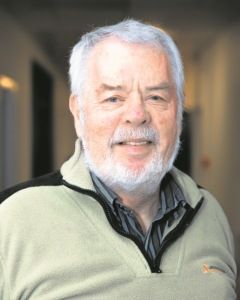Opinion
This Week’s Editorial: This is the new normal
Ejvind Sandal
This article is more than 5 years old.

City Hall also wants to legalise cannabis (photo: Max Pixel)
The corona pandemic is already history. We still wash our hands and do not hug, but we do not fear a spike. Many tests are conducted, but few are positive – a few hundred among 100,000 tested. It is over! (We hope.)
We learned a lot
The government’s tough response to the challenge now seems validated, and the lessons learned are being digested.
Society was shaken but it is rock solid. Families learned a lot about one another by staying home, and productivity increased in business and education bloomed as staff worked at home. Virtual conferences were surprisingly efficient, demonstrating a vastly reduced need for travel thanks to the likes of Zoom.
Reading books got popular and the yellow stripes in the supermarkets to keep us apart will stay. Internet trade got a massive boost and travel modes changed – maybe forever.
It was a gigantic test of our flexibility and readiness to change, and we need to apply the lessons learned to tackling climate change. That threat did not go away, but remedies will not be met with cries of bloody murder when introduced – we have tried worse!
Promote English
Maybe it’s time to try some other changes while we are at it – like introducing English as an official second language.
A third of all business and higher education is conducted in English, and several hundred thousand expats would benefit from understanding Danish legislation.
Not that Danish is not our favourite tongue and carrier of our culture, but a double official recognition may save us from not being able to speak any of the languages properly. While our international engagements will benefit from an all-round higher standard.
Liberalise cannabis use
Liberalise the use of cannabis, control its supply chains and tax it. The gang wars will stop, the quality will improve and the judicial system will be relieved from a Sisyphean task.
Politicians have to understand that the demand will not lessen – no matter what they do. Look at the effect Prohibition had in the US in the 1920s. It was meant to solve a serious problem, but it only created something worse without solving the problem.
Decomplicate share purchases
Improve shareholder culture by simplifying the complicated tax regime on profits and losses on share transactions.
It is an obstruction to popular involvement in taking active ownership in companies – which is after all financing the welfare state.
We already have a solution: the ratepensionskonti pension accounts, of which the profits are only taxed when paid out.
The same system should apply to general savings accounts containing shares. In times when interest rates are negative we need the possibility to invest in active positions – without an overcomplicated tax system.
Opposite of a lockdown
These are just three suggestions, but all three are waiting for politicians with the insight and courage to do something.
If they dare to close the country down, they should be able to open it up to a brighter future.

About
Ejvind Sandal
Copenhagen Post co-owner Ejvind Sandal has never been afraid to voice his opinion. In 1997 he was fired after a ten-year stint as the chief executive of Politiken for daring to suggest the newspaper merged with Jyllands-Posten. He then joined the J-P board in 2001, finally departing in 2003, the very year it merged with Politiken. He is also a former chairman of the football club Brøndby IF (2000-05) where he memorably refused to give Michael Laudrup a new contract prior to his hasty departure. A practising lawyer until 2014, Sandal is also the former chairman of Vestas Wind Systems and Axcel Industriinvestor. He has been the owner of the Copenhagen Post since 2000.










































